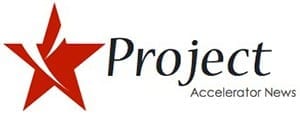Introduction
Throughout our careers, we will face hundreds maybe thousands of meetings. Many approaches have been developed to ensure meaningful meetings but the objective remains the same – to have an effective and successful meeting deliberating, reaching agreement, assigning tasks or formulating plans.
Nevertheless, many meetings can be just a meeting place where people exchange greetings, discuss things not in the agenda, finish up coffee and leave. Why is this happening? Without clear intent of the purpose of the meeting, people will just be wasting time. But this is not the only reason that so many meetings fail to meet the objective. There are many other challenges which include the preparation for the meeting, time and venue where the meeting is conducted, managing the mood of the meeting and also participant’s attitude and desire to be part of and contribute to the meeting.
For most of the time, most of the meeting organizers will use their leaderships skills to ensure the smooth running of the meeting but the other key factor is how the meeting is prepared.
This paper will discuss some of the best practices for Organizing Effective Project Meetings as designed and customized based on the practice in a government agency involved in research and development of IT projects. It will discuss some of the best approaches which could be applied in any type of project management environment.
Meeting Preparation
To have an effective meeting you need to become more productive and this requires good preparation from the beginning. It is important for the meeting organizer, typically the chairperson, to start the planning described in the section below:
- Define Meeting Objective
The objective of the meeting must be clear, and needs to be communicated as soon as the meeting is being broadcast to the participants. The objective of the meeting will drive the energy of other important elements required for the meeting preparation.
- Know Your Topic – Establish Meeting Agenda
With the objective of the meeting established, the very next thing is the agenda of the meeting. It has to be as detailed as possible and needs to be sent to the participants a few days before the meeting. The detailed agenda shall also mention the expectation of each item to ensure the participants prepare the required answers, feedback or update. In some meetings, the participant would to some extent need to share their extensive findings in a presentable format. Without prior notice of the agenda, the participants might not be ready for the meeting which end up with another meeting needing to be arranged. This will waste everybody’s time but, worse, any decision which depends on the findings will also be delayed. Some delay is just too expensive as it might cause delay to the project.
- Know Your People – Identify The Participants
Who shall be attending the meeting? As soon as the agenda is confirmed, the chairperson shall be able to start putting the name of the person responsible for the items in the agenda The persons expected to participate in the meeting must be notified a few days prior to the meeting. Sometimes, since most of the people are engaged in more than 1 project, the person responsible for the agenda item might not able to attend the meeting. In this scenario – a replacement participant is required to ensure a fruitful discussion of the particular topic.
An agenda for the meeting will ensure appropriate preparation for the meeting by the participants, but most importantly will ensure the right person attends for the items to be discussed – this is the key to a successful meeting. If the person invited is not the key decision maker, there will be a risk that any decision made is incorrect or incomplete.
Another important aspect when sending the invitation for the meeting is that we shall not at any time invite anybody without a proper understanding of how he/she could contribute to the meeting.
- Know Your Time- Choosing the Appropriate Time for the Meeting
The organizer should know the best or the most appropriate time to have the meeting. In many cases, based on observations of previous projects – the first half of the day is the best time to have a meeting to generate new ideas i.e. brainstorming, working out a solution to a problem or issue. The second half of the day, when peoples usually are already tired, would be good to have a meeting to follow up on action items or status updates of action items captured in earlier meetings.
For most of the cases, it is recommended to schedule meeting in between 9am-5pm, not outside working hours. Avoid starting a meeting shortly before the lunch hour, or the end of the day as it is almost certain that the participants are not able to fully focus on the agenda and end up wasting everybody’s time.
- Know Your Location – Choose the Meeting Place
The venue for the meeting is one of the important things the meeting organizer has to arrange. The meeting venue can affect the overall mood of the meeting. Factors to be considered in choosing the venue:
- Project team distribution because some project teams are not co-located. The best venue for a meeting would be a central place for all the project team’s locations
- If the meeting is to be held outside of the office consider the distance, mode of transport and traffic to the destination. Some meetings are delayed just because team members are not able to make it on time.
- The tools required for the meeting. If a conference call or video conference is required, the venue selected shall be equipped with a projector and speaker phone. Nowadays, there are technologies available to provide uninterrupted and high quality video conferences. Among the basic tools required for a meeting is a whiteboard and a projector.
- Size of meeting room vs the participants needs to be assessed. The room needs to comfortably accommodate the participants, and enough chairs need to be provided. If the room is congested, it will impact the effectiveness of the meeting.
- Amenities such as toilets and refreshments nearby also need to be checked.
- A room with a conducive environment would be a plus. Run down interiors or a room with an unpleasant odour would affect the focus of the participants.
Conclusions
Well organized project meetings will result in a greater chance of achieving the meeting’s aims. Participants will attend the meeting with clear objectives, well prepared and ready to actively participate in the meeting.
When the meeting preparation is smooth, the next thing is how to conduct an effective meeting. This will be the next topic to be covered in an upcoming paper.
Authors:
Ishak, Mohd Nazrul
Mohd Salleh, Zainal Abidin


